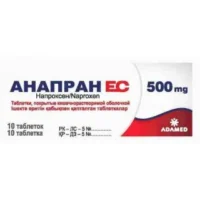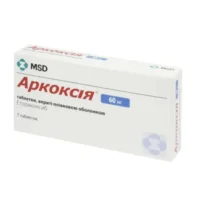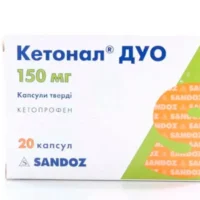Description
Rapten Rapid (Diclofenac Potassium) Coated Tablets 50 mg
Ingredients:
- Each coated tablet contains 50 mg of diclofenac potassium as the active ingredient.
Dosage:
- The recommended dosage is one tablet taken orally twice daily with food.
Indications:
- Rapten Rapid tablets are indicated for the relief of pain and inflammation in conditions such as osteoarthritis, rheumatoid arthritis, ankylosing spondylitis, and acute gout.
Contraindications:
- Do not use Rapten Rapid tablets if you have a history of allergic reactions to diclofenac or other NSAIDs, or if you have active peptic ulcers or gastrointestinal bleeding.
Directions:
- Swallow the tablet whole with a glass of water. Do not crush, chew, or break the tablet.
Scientific Evidence:
Diclofenac, the active ingredient in Rapten Rapid tablets, is a nonsteroidal anti-inflammatory drug (NSAID) that works by inhibiting the enzyme cyclooxygenase, thereby reducing the production of prostaglandins which are mediators of pain and inflammation. Several studies have demonstrated the efficacy of diclofenac in managing pain and inflammation associated with various musculoskeletal conditions.
Additional Information:
- Rapten Rapid tablets provide rapid relief from pain and inflammation due to their fast-acting formulation.
- It is important to follow the prescribed dosage and not exceed the recommended duration of use to avoid potential side effects.
- Research has shown that diclofenac is well-tolerated and effective in the management of acute and chronic pain conditions.
- A study published in the Journal of Pain Research concluded that diclofenac is a valuable option for the treatment of osteoarthritis pain due to its favorable efficacy and safety profile.





